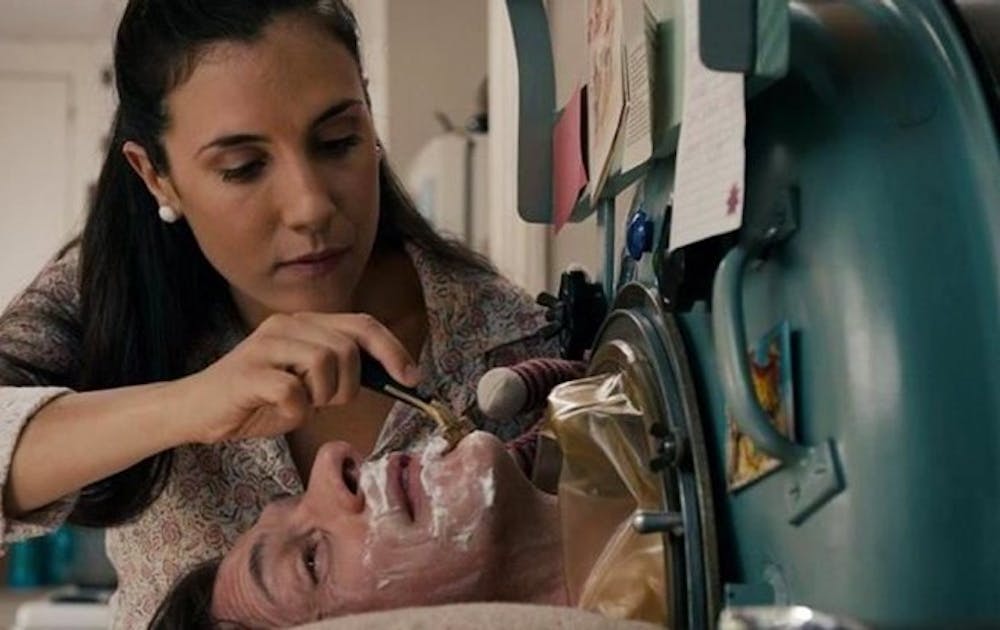Do you believe in a God with a wicked sense of humor? If you are a 38-year-old virgin trapped in an iron lung, you may have to in order to maintain your sanity.
The Sessions is an independent film written and directed by Ben Lewin and based on the true story of Mark O’Brien (John Hawkes), a poet and journalist who, after a childhood bout with polio, is left a paraplegic. While needing a personal assistant to attend to many of his daily needs, Mark is able to perform some tasks such as dialing a telephone, reading and writing newspaper columns through the use of a stick held in his teeth. However, there is one act that the crippled protagonist cannot accomplish—especially by himself. It is for this reason that he contacts a sex surrogate, Cheryl (Helen Hunt).
The Sessions follows the framework of a love poem combined with a revealing confessional and a psychoanalytic case study. The plot of the movie stems from an article the real-life Mark wrote for The Sun in 1990 entitled “On Seeing a Sex Surrogate.” The film switches between instances of Mark confiding in his parish priest (William H. Macy) and of Cheryl recording her observations about her sessions with Mark. We also see the painful and awkward attempts Cheryl makes to adequately help Mark understand how he can satisfy himself and a potential female partner. Despite his intense desires, Mark is initially very uncomfortable talking about sex. Talk of drug-induced sexual abilities initially horrifies him, but his time with Cheryl opens the door to a healthier, more open view of sex.
But The Sessions is much more than a dramatic version of 40-Year-Old Virgin. It is also a tale about love and how we can find it in the most unexpected of places. This movie chronicles the journey of life, and how beautiful, terrifying, cruel and—most importantly—illogical it can be. We also get an opportunity to see Cheryl become much more than a simple sex surrogate and to understand the more profound elements of her occupation. She helps Mark avoid self-blame for developing polio and to see that his life is not necessarily a series of punishments.
Too often, disabled characters in film are given only minor roles and a one-dimensional portrayal. I would give a few examples, but these characters are so bland and forgettable that none come to mind. The Sessions instead follows the vein of movies like Forrest Gump, My Left Foot and Rain Man, all of which served to give a more complete portrait of their disabled protagonists. The Sessions shows that they have the same needs as everyone else—everyone wants to be loved by someone.
Get The Chronicle straight to your inbox
Signup for our weekly newsletter. Cancel at any time.

